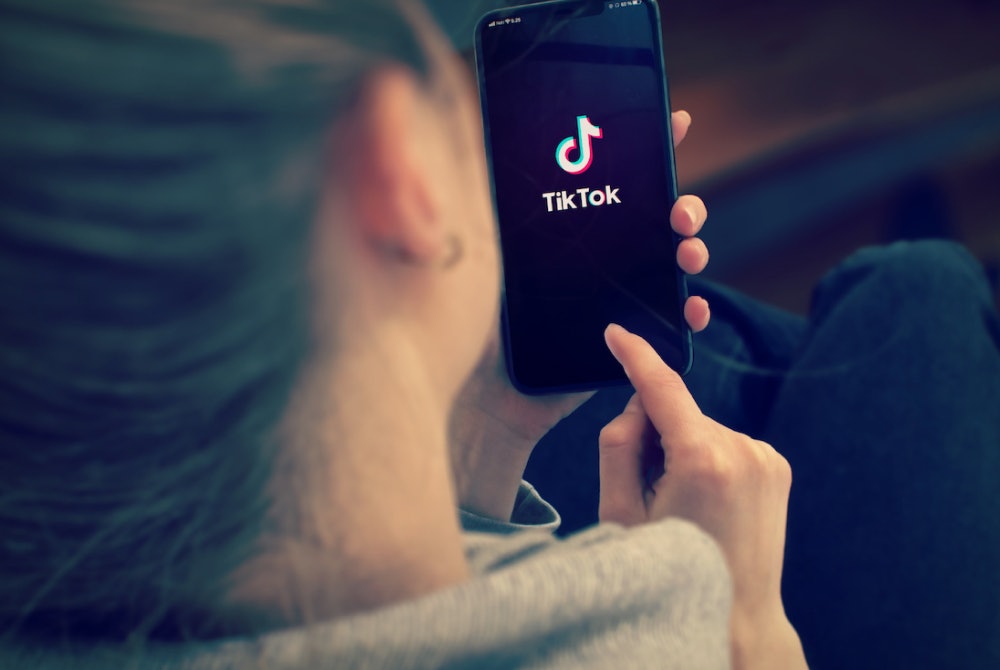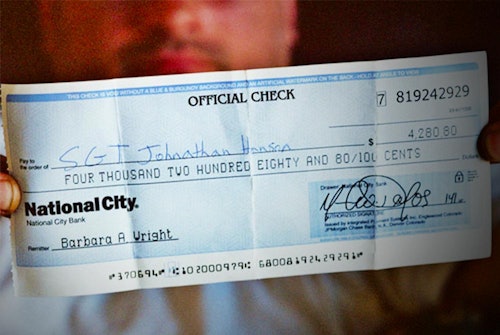- Carrier Services to Stop Scam Calls
- How to Stop Scam Calls and Robocalls with Apps
- Do Not Call Register
- What to Do If a Scammer Calls You
- Common Scam Phone Calls
- Frequently Asked Questions
We live in a digital age, and as a result, we are more aware of the dozens of online scams that fraudsters use to try and steal our personal information. However, phone calls still remain key methods scammers use to relieve you of your sensitive data and your cash. So, is there anything you can do to stop scam calls?
Thankfully, there are several things that reduce your risk of being the victim of repeated nuisance calls, including registering with the National Do Not Call Registry, changing your phone settings, and downloading call-blocking apps.
Scam Call Statistics
- In 2020, a third of fraud complaints to the FTC were from scam calls
- In 2020 scam calls cost their victims an average of $182
- Americans lost $19.7 billion in phone scams in 2020, up over 50% on 2019
- 56 million Americans lost money from a phone scam in 2020
(Source: Comparitech, 2021)
Carrier Services to Stop Scam Calls
Each of the big cell phone providers—AT&T, T-Mobile (Sprint), and Verizon—offer protection against robocalls, blocking spam calls before they even get to you.
AT&T
AT&T customers can download its Call Protect app for free, which blocks calls from suspected scammers and allows you to block numbers, not in your contact list. The premium version, Call Protect Plus, offers extra features including reverse number look-up and detailed information about unknown numbers for an additional cost of $3.99/month.
T-Mobile
T-Mobile users can access three services to help stop scam calls:
- Scam Block (Free): Stops suspicious calls before they even get to your phone.
- Scam ID (Free): Warns you if an incoming call is likely to be from a scam caller.
- Name ID ($4/month): Allows you to send nuisance calls straight to voicemail.
You can also download T-Mobile’s free Scam Shield app to give you control over the services above and upgrade to Scam Shield Premium for advanced control.
Verizon
Verizon offers a free Call Filter app that allows you to:
- Screen calls
- Block spam and stop scam calls automatically
- Report scam numbers
- Identify unknown numbers (paid version only)
- Create a personalized list of blocked numbers (paid version only)
- Assess the risk of incoming calls (paid version only)
How to Stop Scam Calls and Robocalls with Apps
Although phone carriers have implemented methods to help block and stop scam calls, some will inevitably still get through. The following free apps are great choices to help block those pesky robocalls:
Do Not Call Register
Adding your phone numbers to the National Do Not Call Registry, will prevent telemarketers from targeting you with unwanted sales calls. Telemarketers who ignore the Registry can be fined up to $40,000, so for stopping nuisance sales calls the Do Not Call Registry is a useful tool.
However, those who make robocalls and scam calls don’t care about the list, so you shouldn’t rely on the Registry alone. Use call-blocking apps and services from your phone provider, as well as adding your number to the Registry to greatly reduce the amount of spam and scam calls you get.
What is a Robocall?
On average, there are over 165 million robocalls in the US every day; 50% of which were made by scammers.
A robocall is a phone call made by a computerized autodialer to deliver a pre-recorded message, instead of a live person. They are a cheap and easy way for scammers to steal your information—thanks to autodialers, scammers can send out thousands of robocalls a day, for just a few dollars.
A robocall trying to sell you something is illegal unless the company contacting you has got your permission.
If you don’t recognize a telephone number, there’s a chance it’s a robocall and it’s best not to answer. Even if you don’t fall for the scam, just answering the call marks you to the fraudster as a potential victim.
What to Do If a Scammer Calls You
As mentioned earlier, it’s best not to answer calls from numbers you don’t know. If the call is important, the person will leave a voicemail and you can call them back. If you answer, your number is considered a target by scammers. Generally speaking, the fewer scam and robocalls you answer, the fewer nuisance calls you’ll receive.
However, it’s becoming difficult to determine if a call is a scam or legitimate, as spoofing calls become more common. Spoof callers deliberately change the number of their caller ID to mimic a real person’s name or company to trick you into taking the call. For example, your phone could show “Social Security” as the person calling you, but it’s just a trick that scammers use.
Do:
- Hang up as quickly as possible on illegal robocalls.
- Add your numbers to the National Do Not Call Registry.
- Verify the caller by hanging up and calling the organization back using their official phone number.
- Disconnect from a caller claiming to be from the IRS—they never call customers directly.
- Review company policies to ensure they won't share your number with third parties.
- Report scam phone calls to the Federal Trade Commission (FTC).
- Protect your voicemail with a password to prevent hackers from accessing it.
Don't:
- Answer calls from unknown numbers—let them go to voicemail.
- Hand over personal information such as account and Social Security numbers.
- Give out your telephone numbers online or post them publicly.
- Press keys or issue a response to pre-recorded messages as it will lead to more scam calls.
- Place all your trust in the caller ID. Scammers spoof caller IDs to show a legitimate organization.
- Follows instructions to speak to a live operator—an aggressive sales pitch or phishing attempt will likely follow.
- Forget to block scam numbers as soon as you end the call. They're likely to try and call back.
Common Scam Phone Calls
Phone scammers operate from all over the world and it’s scary that they can pretend to be almost anybody. However, there are key schemes they tend to follow, which can help you identify when a call is not as genuine as it first appears. Staying aware of these common phone scams will help you beat them and keep your information and money safe.
Debt Collection Scams
The Scam: The caller claims to be from a debt collection agency and demands repayment.
The Facts: Legitimate debt collections are required to provide you with verifiable information, like the creditor and the amount owed. You have a right to ask for written confirmation of the debt that must be given within five days of the call.
Social Security Scam Calls
The Scam: There has been an issue with your Social Security number (SSN) resulting in your identity being compromised. You need to pay to fix the issue and you need to do it quickly.
The Facts: It’s rare for the Social Security Administration (SSA) to call you without you first sending a request. If you get an unexpected call from someone claiming to be a Social Security agent, hang up and report the number as soon as possible.
IRS Scam Calls
The Scam: The caller claims they’re from the Internal Revenue Service (IRS) and threatens to have you arrested unless you pay the outstanding balance immediately.
The Facts: The IRS never calls you—ever. If someone calls claiming to be an IRS agent, they’re lying. Hang up the phone and report them.
Travel Promotion Scam Calls
The Scam: You’ve won a free cruise, flight, or luxury holiday. You just need to hand over your credit card number or social security to verify your identity.
The Facts: You can’t win a competition you didn’t enter and handing over your personal information, particularly financial information, should never come as a condition for winning a prize. To be safe, don’t ever give out any of your personal information over the phone.
Tech Support Scam Calls
The Scam: A major tech company (e.g., Google, Windows, or Apple) has discovered a serious issue with your computer, such as a virus or a privacy breach. You must act now or risk losing all your data.
The Facts: Tech companies don’t monitor individual user’s devices for viruses. If someone calling you claiming to need access to your computer is sure to be a scammer looking to steal the information stored on your devices.
Fake Charity Scam Call
The Scam: It’s urgent that you donate to the charity now to provide aid to the victims of a recent natural disaster or tragedy.
The Facts: Legitimate charities and non-profit organizations will never rush or pressure you into donating money. If you do want to give to a charitable organization, do it directly through the genuine website, not through an unsolicited call.
Other Common Phone Scams
- The one-ring phone scam: Your phone rings just once, prompting you to return the call. When you do, you’ll be subject to high call charges.
- The stranded grandchildren scam: A cruel scam where a fraudster claims to be a grandchild calling from jail (or stranded in another way) and needs money urgently to get home.
- The loan scam: Those with poor credit are often targeted for this scam which offers low-interest loans or credit cards for a small upfront fee. Once the fee is handed over, the loan or credit card never arrives.











Comments